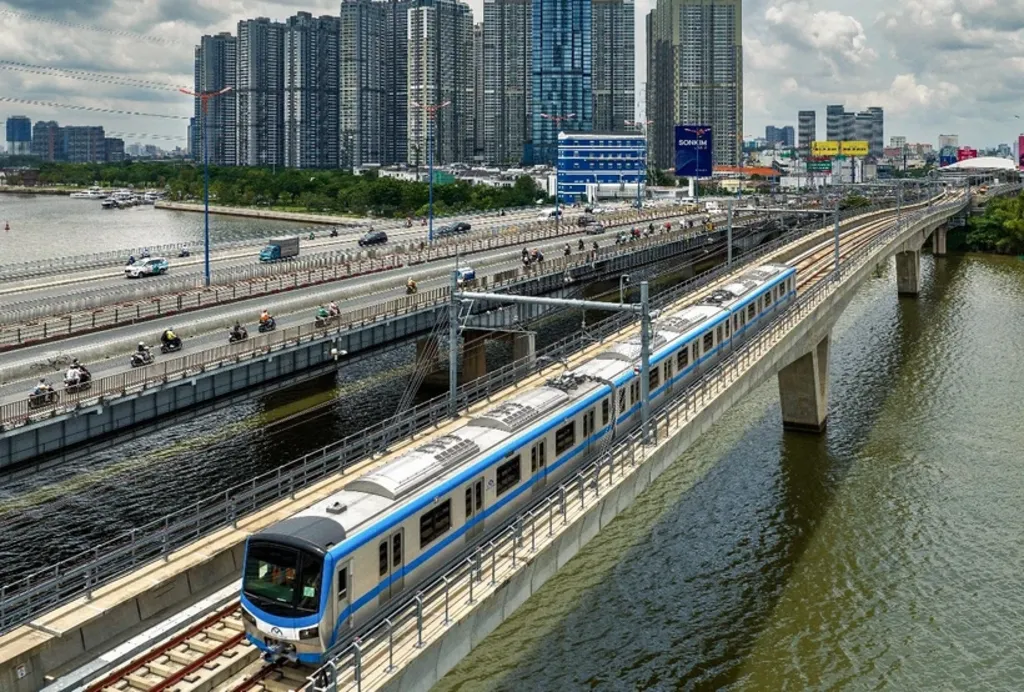 |
| The Ben Thanh-Suoi Tien urban railway line in Ho Chi Minh City__Photo: VNA |
The Government is charting a new course for the country’s railway sector through a draft revised Railway Law that is scheduled to be discussed by National Assembly deputies on June 23.
Comprising 80 articles arranged in eight chapters, the draft aims to overhaul existing regulations, with a strong emphasis on encouraging private sector participation in railway infrastructure projects via Build-Transfer (BT) and Build-Operate-Transfer (BOT) models.
According to Minister of Construction Tran Hong Minh, the draft reflects the State’s strategic priority of making railways a core component of the national transport system. To this end, the State will increase funding to build, upgrade, maintain and protect railway infrastructure while also investing in the railway industry.
The draft law mandates the prioritization of budget allocations for the development of railway infrastructure and the training of human resources in accordance with approved master plans and plans. It also calls for the reservation of land for construction of railway infrastructure and related facilities. Meanwhile, local resources are to be mobilized to the fullest extent to facilitate land compensation, provide resettlement assistance, and construct specific components of the national railway infrastructure in localities through which railway lines pass.
To make railway projects more attractive to investors from non-state sectors, the draft law proposes a range of financial incentives. Organizations involved in railway business activities will be eligible for exemption from, and reduction of, land use levy and land rental, and the State’s support for the development of national and local railway infrastructure. Entities investing in railway infrastructure construction will also have their entire expenses for land clearance, operational preparation, and technology transfer and training covered by the State.
Beyond investment incentives, the draft law introduces provisions to promote R&D activities in the railway sector. Organizations and individuals engaged in scientific and technological tasks for the development of the railway industry will be allowed to apply the methods of restricted bidding, contractor designation and order placement to select contractors for provision of services and goods. During the implementation period, they will receive incentives similar to those offered to hi-tech enterprises under the law on high technology. In addition, they will be entitled to supports from the state budget for the procurement and operation of machinery and equipment required for R&D activities in the railway sector.
Minister Minh described these provisions as breakthrough solutions designed to address longstanding procedural bottlenecks in the investment process for urban railway systems at the local level, help to accelerate investment and facilitate the completion of urban railway networks in Hanoi and Ho Chi Minh City by 2035.
Workforce development is another central focus of the draft law. Foreign contractors involved in railway infrastructure projects will be required to transfer technology and provide training for Vietnamese personnel. This provision aims to enhance domestic capacity to manage and operate modern railway systems independently, thereby reducing future reliance on foreign technical expertise.- (VLLF)









